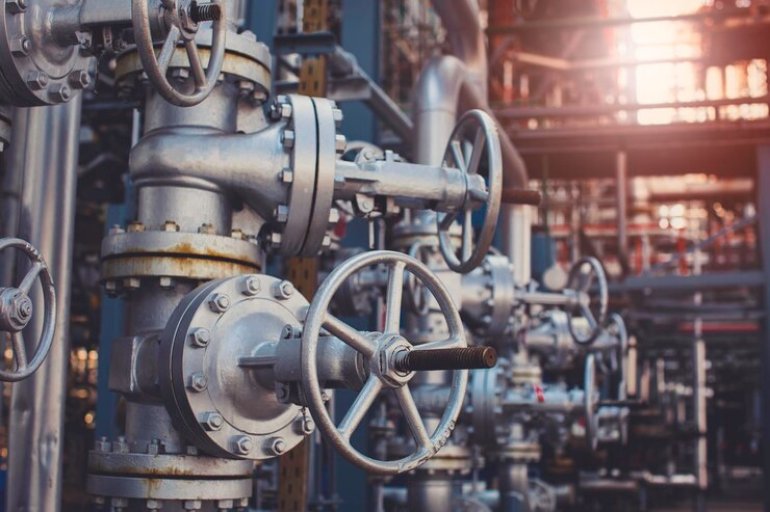Crucial Role of Industrial Valves in Process Control and Automation

Introduction:
In the ever-evolving landscape of industrial processes, efficiency and
precision are paramount. As industries strive for optimal performance and
cost-effectiveness, the role of industrial valves in process control and
automation becomes increasingly significant. Industrial valves serve as
critical components in various systems, facilitating the control of fluid
flow, pressure, and temperature. In this article, we delve into the
multifaceted role of industrial valves in the realm of process control and
automation, exploring their importance, types, and the impact they have on
overall industrial operations.
The Foundation of Process Control:
Process control is a fundamental aspect of industrial operations,
encompassing the management and regulation of variables such as flow,
pressure, and temperature within a system. Industrial valves form the
cornerstone of process control, acting as gatekeepers that enable precise
manipulation of fluid flow and other parameters. By regulating these
variables, valves play a pivotal role in ensuring the smooth and efficient
operation of diverse industrial processes.
Types of Industrial Valves:
1. Control Valves:
Control valves are the linchpin of process control systems. These valves
modulate the flow of fluids to maintain desired conditions within a process.
Equipped with sophisticated actuators, control valves respond dynamically to
signals from control systems, adjusting their positions to regulate flow
rates accurately. This level of automation ensures real-time adjustments,
optimizing operational efficiency and minimizing manual intervention.
2. Gate Valves:
Gate valves are primarily used for on/off applications, allowing or blocking
the flow of fluids. While not as dynamic as control valves, gate valves play
a crucial role in isolating sections of a pipeline or system. Their robust
construction makes them suitable for handling high-pressure and
high-temperature applications, adding an extra layer of safety to industrial
processes.
3. Ball Valves:
Ball valves, characterized by a spherical closure element, are widely used
for their reliability and quick shutoff capabilities. These valves find
applications in various industries due to their versatility and ease of
automation. They are particularly effective in applications where rapid
opening and closing are essential.
4. Butterfly Valves:
Butterfly valves regulate flow using a disc mounted on a rotating shaft.
Known for their compact design and ease of operation, these valves are often
employed in large-scale applications. Their quick operation and minimal
pressure drop make them suitable for situations where fast response times
are critical.
5. Check Valves:
Check valves, or non-return valves, allow fluid to flow in one direction
only. These valves prevent backflow, maintaining the integrity of a system
and preventing damage to equipment. Check valves are crucial for ensuring
the unidirectional flow required in many industrial processes.
6. Pressure Relief Valves:
Pressure relief valves safeguard equipment and systems from overpressure. By
automatically releasing excess pressure, these valves prevent catastrophic
failures and protect assets. In automated systems, pressure relief valves
contribute to maintaining optimal conditions within the defined parameters.
The Automation Advantage:
Automation in industrial processes has become synonymous with increased
efficiency, reduced human error, and enhanced safety. Industrial valves,
when integrated into automated control systems, amplify these benefits.
Automated valves respond rapidly to changing conditions, executing precise
adjustments in real time. This not only improves the overall efficiency of
processes but also minimizes the risk of errors associated with manual
control.
Furthermore, the integration of sensors, actuators, and feedback mechanisms
enables a closed-loop control system. In this setup, valves continuously
receive feedback on process conditions, allowing for dynamic adjustments to
maintain desired parameters. The result is a highly responsive and adaptive
system that can optimize performance, reduce energy consumption, and extend
equipment lifespan.
Challenges and Solutions:
While the integration of industrial valves into automated systems offers
numerous advantages, challenges such as system complexity, maintenance
requirements, and cybersecurity concerns must be addressed. Regular
maintenance is essential to ensure the longevity and reliability of valves.
Predictive maintenance techniques, enabled by sensors and data analytics,
can help anticipate issues before they escalate, minimizing downtime and
optimizing performance.
Cybersecurity is another critical consideration, especially as industrial
processes become more interconnected. Protecting automated control systems
from cyber threats is imperative to prevent unauthorized access, data
breaches, or tampering that could compromise the integrity of industrial
processes. Robust cybersecurity measures, including firewalls, encryption,
and regular audits, are essential components of a comprehensive strategy.
Conclusion:
In conclusion, the pivotal role of industrial valves in process control and
automation is evident in their ability to regulate fluid flow, pressure, and
temperature with precision. As industries strive for operational excellence
and efficiency, the integration of advanced industrial valves into automated
systems becomes a strategic imperative. The synergy between cutting-edge
technologies, such as sensors and actuators, and the diverse types of valves
ensures a responsive and adaptive control system that optimizes performance
and reduces human error.
However, as industries embrace automation, challenges such as system
complexity, maintenance requirements, and cybersecurity concerns must be
addressed. Regular maintenance, enabled by predictive techniques, is
essential to ensure the reliability of valves, while robust cybersecurity
measures are imperative to protect against unauthorized access and potential
threats.
For those seeking high-quality industrial valves, one notable provider is
Oswal Industries Limited. As a reputable manufacturer and supplier, Oswal
Industries Limited offers a range of valves designed to meet the stringent
demands of modern industrial processes. Their commitment to excellence and
innovation makes them a reliable partner for industries looking to enhance
their process control and automation systems.
In the dynamic landscape of industrial automation, the combination of
advanced industrial valves and state-of-the-art technologies is shaping the
future of manufacturing and process industries. The continued development
and integration of these critical components will undoubtedly contribute to
a safer, more sustainable, and efficient industrial landscape. For all your
industrial valve needs, consider exploring the offerings from Oswal
Industries Limited, where quality and reliability converge to meet the
evolving demands of industrial processes.
